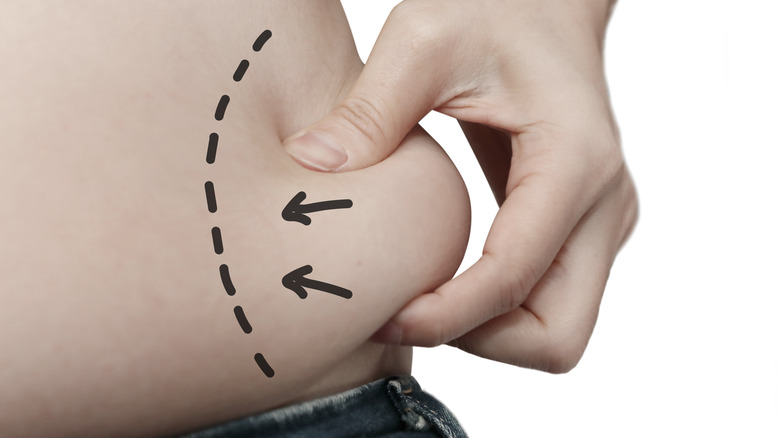Foods You Can't Eat After Bariatric Surgery
As you prepare and research in the days leading up to a scheduled surgery, it is understandable if you haven't given much thought to post-operative care. After all, you're likely using serious focus and energy to ensure everything is in place beforehand. However, it's also important to think about the future and have a plan for your recovery as well. This is especially true if you are about to undergo bariatric surgery.
According to the Mayo Clinic, bariatric surgery is a name that collectively encompasses all weight loss surgeries, including gastric bypass. Bariatric surgeries make changes to your digestive system in order to help you lose weight. Those who qualify for these types of surgeries typically have a body mass index between 35-40 and have exhausted diet and exercise attempts. These types of surgeries are serious and involve full anesthesia, as well as plenty of risk evaluation. If you accept the risks and elect to undergo a form of bariatric surgery, you're going to want a quick and complication-free recovery. In order to make this happen, it's essential that you know what to keep out of your digestive system after the procedure.
Eating the right foods is essential post-surgery
Firstly, it's important to stay away from alcohol after surgery. Booze consists of empty calories and takes up a lot of space in your newly shrunken stomach. In addition, Phoenix Health notes that alcohol absorption increases dramatically after having surgery. This could lead to potential accidents related to intoxication. It's also not the best beverage of choice to mix with any medication prescribed following surgery. To be on the safe side, stick with water and drop the sugary, caffeinated drinks, along with the booze, until your doctor signs off on reintroducing them into your diet.
In terms of foods to avoid, Penn Medicine recommends cutting out red meats that are dry or tough, high-fat meals and snacks, heavily spiced items, and foods that have been reheated in the microwave. Instead, post-op patients are encouraged to eat 3 small meals a day. Start each meal by consuming the protein first, and keep a food diary to track any intolerances.
According to the U.S. Centers for Disease Control and Prevention, about 9.2% of the adult population in the U.S. was considered to be severely obese in 2017-2018. Bariatric surgeries may help those who are affected by this condition and want to make a change. However, it's important to plan for the whole process, which includes your post-operation diet.


